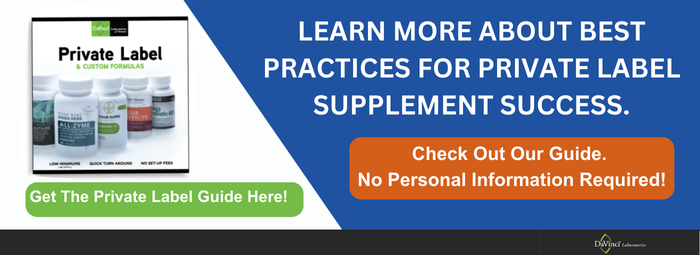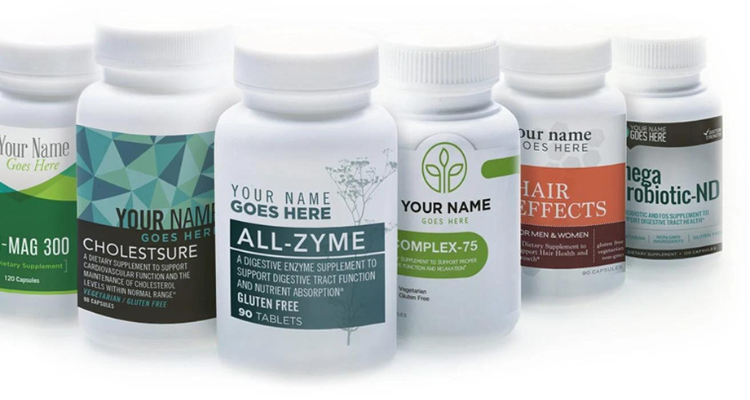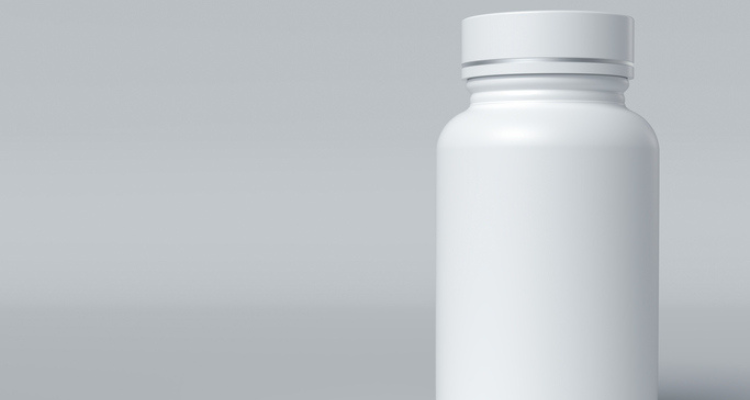If you’ve ever wondered whether you have the necessary qualifications to sell private label supplements, the answer is probably yes. And there’s never been a better time to do so.
Selling private label supplements doesn’t require any type of license—including a medical license. You don’t need to be a healthcare professional or even know much about supplements.
However, the supplement industry is face-paced and competitive. Partnering with a professional, experienced private label provider and thoroughly understanding the relevant legal requirements is vital not only for success, but for avoiding obstacles along the way.
Can Anyone Sell Private Label Supplements?
Whether you’re a medical professional or not, selling private label supplements in private practice, brick-and-mortar retail space, or any E-commerce platform is an excellent way to create a significant revenue stream.
If you’re not already in business, it’s best to incorporate your business or register as an LLC that can be covered with liability insurance before venturing into private label supplement sales. Once you define your brand, you’ll be ready to start choosing products, designing your labels, and making money with private label supplements.

FDA Requirements for Private Label Supplement Vendors
While you aren’t required to be a licensed healthcare professional to sell supplements, it is crucial to be aware of and meet all FDA supplement regulations and guidelines before doing so.
When it comes to supplements, the US Food and Drug Administration (FDA) is a regulatory agency that dictates which claims supplement companies can legally make about their products. This government agency regulates products used for public health purposes, including pharmaceutical drugs, food products, cosmetics, tobacco, and medical devices. Supplements fall under the category of food products. So while FDA doesn’t control supplement sales, products must be compliant with regulations regarding labeling and manufacturing.
As a private label supplement vendor, you are responsible for complying with FDA regulations and labeling guidelines. If you work with an experienced private label supplier, your labels will be designed with FDA regulations in mind—taking one of many considerations off your plate.
5 Tips to Ensure You are Qualified to Sell Private Label Supplements
These considerations will help you avoid roadblocks and set you up for success when starting a private label supplement business.
Start with an Incorporated Business
If you’re a licensed healthcare provider, you probably already have a legal business. While having an established business is not required to sell private label supplements, it will make your life easier, as it allows you to protect yourself with insurance and instills trust in your customers.
Always Meet FDA Requirements
FDA requires supplement companies and vendors to follow Good Manufacturing Practices (GMPs), which they enforce through inspections and the authority to prosecute, seize, and remove products that don’t meet regulations. Supplement vendors are only permitted to sell products that contain ingredients currently in the food supply or used in dietary supplements before 1994 when the Dietary Supplement Health and Education Act was passed, or submit notification to FDA for a New Dietary Ingredient. This law specifies precise labeling requirements.
A trusted private label supplier should have GMP certification and other certifications that will help verify their production of quality products. These certifications might include USDA organic, Vegan Certified, or Non-GMO Project Verified, all of which will help instill trust in your buyers and create loyal customers.
Have Liability Insurance
You are not legally required to have liability insurance for selling private label supplements, but it’s definitely something you’ll want. Make sure to find an insurance broker with experience in the dietary supplement industry. You can also ask your private label supplement provider if they offer liability insurance.
Choose a Professional and Experienced Private Label Supplier
You’ll want to choose a high-quality supplier with products that meet your needs, but you’ll also want your supplier to help you make smart decisions about what to sell. Look for a supplier that receives high marks from other private labelers, aligns with your core values, and has excellent quality standards. A supplier that offers help with design and marketing is also a huge plus.
Consider turnaround time on reorders, order minimums, and label fees. If you have a small practice or business, it’s best to start with a provider that offers low order minimums. At DaVinci, we offer a 36-bottle order minimum to decrease any risk associated with products that might not sell quickly.
A supplement provider should also cite statistics, such as inventory turnover for their current clients. Healthy businesses typically turn over their supply of private label products every 4-6 weeks.
Do All Due Diligence Beforehand
To ensure the process goes smoothly, strive to do all due diligence before launching your private supplement label. For example, stay up to speed on marketing, label design, understanding your market and ideal customer, and requirements for E-commerce platforms you plan to use. Checking these tasks off your list will save a considerable amount of hassle down the road.
Conclusion
Selling private label supplements doesn’t have to be complicated, and there are no licenses or complicated qualifications you need to get started. Healthcare professionals and business entrepreneurs can reap massive benefits from entering the world of supplement sales as long as you follow the necessary steps and work with a trusted private label supplement provider.

Frequently Asked Questions About Private Label Supplements
Do you need a license to sell private label supplements?
No, selling private label supplements does not require any type of license, including a medical license. You do not need to be a healthcare professional or have extensive knowledge about supplements to start selling.
Can anyone sell private label supplements?
Yes, anyone can sell private label supplements whether you are a medical professional or not. It is recommended to incorporate your business or register as an LLC and obtain liability insurance before starting sales.
What FDA requirements must private label supplement vendors meet?
Vendors must comply with FDA regulations regarding labeling and manufacturing, including following Good Manufacturing Practices (GMPs). Supplements must contain ingredients recognized in the food supply or dietary supplements before 1994 or have FDA notification for new ingredients.
Is liability insurance required to sell private label supplements?
Liability insurance is not legally required but is highly recommended to protect your business. It is best to work with an insurance broker experienced in the dietary supplement industry.
How do I choose a private label supplement supplier?
Choose a professional and experienced supplier with high-quality products, good customer reviews, and certifications like GMP, USDA organic, or Non-GMO. Consider factors like order minimums, turnaround time, label fees, and whether they offer design and marketing support.
What steps should I take before launching a private label supplement brand?
Do thorough due diligence including understanding marketing, label design, your target market, and e-commerce platform requirements. Preparing these aspects beforehand helps avoid complications later.
What are the benefits of selling private label supplements?
Selling private label supplements can create a significant revenue stream for healthcare professionals and entrepreneurs alike. It is a growing industry with opportunities to build a trusted brand when working with a reliable private label provider.
















